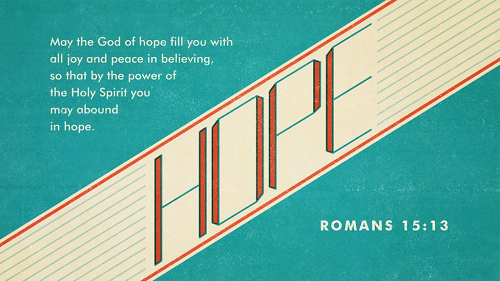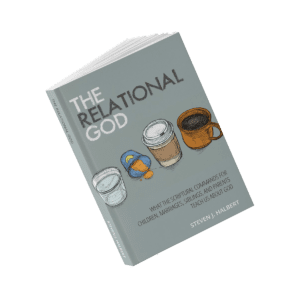Opener: Have you ever struggled with the concepts in Romans 9? I think every Christian (no matter to which dogma you hold) has struggled with the ideas in this passage. But think about it as a parent for a moment. Have you ever hardened the hearts of your child–intentionally?
Introduction to Hardened Hearts
I have mentioned that our church has been going through the book of Romans lately. Today we came to Romans 9-11, arguably one the most difficult sections of Scripture to interpret. As I stated in a previous post (click here), we ultimately need to interpret this difficult passage in light of the rest of Romans and the rest of the Bible.
Regardless, it’s difficult.
If you don’t know why, I would encourage to go read Romans (specifically chapters 9-11). In a nutshell, if God is sovereign and elects/predestines to harden some, how can He hold them accountable in judgment?
My first encouragement to you: dive in. Research. Don’t take my word for it. Understand that this is something the church has wrestled with for centuries. I won’t solve it here.
But today in Sunday school another thought about these passages occurred to me. Maybe it will be helpful to you.
The Character of God
The thesis of my book, The Relational God, is that God created us to be in the relationship of child, spouse, sibling, and parent in order to teach us something about His nature and character. So, as we were considering Romans 9:18, “So then he has mercy on whomever he wills and he hardens whomever he wills,”
I asked myself the question:
Have I ever hardened the hearts of my children–intentionally?
The answer is:
Yes, when their desires crash against my character.
What do I mean?
Hardened Hearts from a Parent’s Point of View
Think about your own children–or, better yet, think about the older brother in the story of the prodigal son. The older brother was angry at the father for his mercy towards the younger brother. What he wanted was for the father to judge the younger brother.
The older brother’s anger crashed against the character of mercy in the father.
It was that character trait of the father which hardened the heart of the older brother. By the end of the story, it is the older brother whose heart is far from the father.
Have I ever been similarly unbending toward one of my children on a topic that was a non-negotiable?
Yes.
Sometimes my child’s heart is hardened against my character, and it is that very character trait (a part of my identity) which hardens the heart of my child in the first place. Thus, it is I who has hardened the heart of my child. It is also I (and that unbending character trait) who will hold them to account for that hardness.
Another Illustration of Hardened Hearts
Perhaps a more extreme example will help illustrate the point (as absurd as it may sound at first).
If my son had a strong desire to murder others, that desire would crash into an unwillingness from me as his (loving) father to allow such a thing. Go with me on this for a minute. I don’t mean he has a fascination with death or pretends to kill people in an innocent, make-believe sort of way. I mean that it is clear that he wants and intends to murder others.
What would I do?
I would likely cut out violent video games and movies, I would take measures to ensure that he did not have access to any sort of weapon, and I would watch him like a hawk. Depending on his age, I might even involve the authorities. All of these actions would be done out of love to insure that he did not violate my character trait of valuing life. Yet, all of these actions–actions that flow out of my identity and character–would likely harden his heart against me even more. It is my unbending identity as someone who values life that his desire to end life would crash into and engender resentment and hardness against me.
In other words, I have hardened my sons heart against me, and, while it would grieve me deeply that he was hardened against me, it would not stop me from supporting the justice that our society would serve upon him if he chose to end another’s life.
My grief over the hardening of my son’s heart or the consequences of that hardening is not diminished even if I am the agent of that hardening. In some ways, it would perhaps be increased.

Conclusion
This is the point that Paul is making in Romans 9-11. Indeed, how does this difficult section of Scripture start? It starts with Paul’s burden for his fellow countrymen who have missed the point (Romans 9:1-3)! The point is that God is a loving Father. He is grieved by Israel’s failure to see His salvific work. It is not by our works that we get into heaven. Relying too heavily on our works will cause our hearts to be hardened like the older brother’s in the story of the prodigal son. Instead, we trust in our adoption as sons through Christ Jesus (which is what chapter 8 of Romans is all about)!
As I say at the end of chapter 8 in my book The Relational God:
The younger brother represents joy. The older brother represents service. What we need is a brother who can lead the way to joyful service: one who knows when to remind the older brothers among us to show grace and generosity (the pathway to joy from dutiful service), and one who can embrace the younger brothers among us after they have sinned (the pathway back to dutiful service from misplaced joy).
We need Christ!
Indeed, it is Paul who reminds the older brothers among us not to sit in judgment over the younger brothers among us, and the younger brothers among us to not look down upon the older brothers among us (see Romans 14).
Why?
Unity in Christ (Romans 15).
Paul concludes his epistle with a warning against division in the body of Christ (Romans 16:17-27).
And when considering such weighty matters as these, that seems like a really great way to end.

Additional Resources
Sermons:
As I’ve mentioned in a few of these blog posts, our church is currently going through the book of Romans. If you want to hear solid sermons on Romans, check out this site (sermons dated September, October, and November 2018):
Blog Posts:
Anytime you are examining a passage from which you derive a controversial or divisive theology (i.e. Romans 9), it is important to see that passage within context. Context is king. To that end, see one of my blog posts below which summarizes the entire book of Romans. Romans – a Reformation Day Summary (with audio)
Additionally, although Romans may often be used to divide, it is an incredibly hopeful book. Take a look at my recent post “You Are in the Family” for some of that inspiration. You Are in the Family
Or, if you find yourself in a situation where these texts are being used to divide, see my co-written blog post “Does Calvinism Make Any Difference?” Does Calvinism Make Any Difference?
Book: If you enjoyed this post, you may also enjoy my book about our familial relationships:
Encouraged?
- Add your comments or questions below
- Share this post using the links below
Picture Credit:
- Majestic landscape images used with permission from my friend J.D. O’Neal who lives with his family in Colorado. You can purchase his images from: https://jdoneal.smugmug.com/
- Top Image: Loveland Pass
- Bottom Image: Hayden Peak





